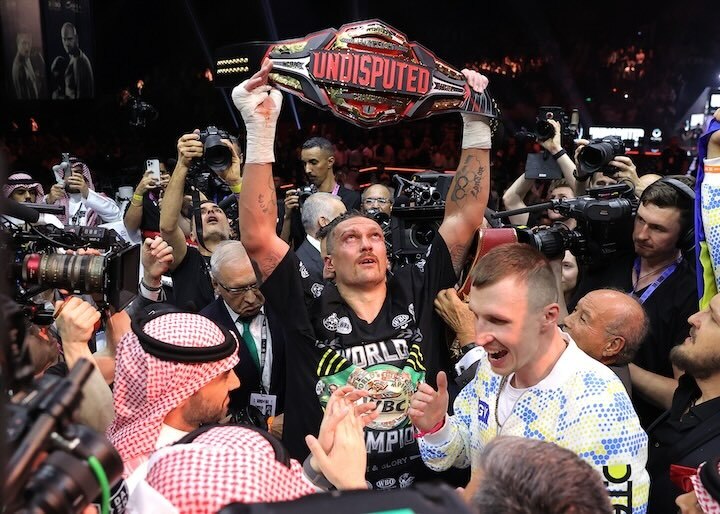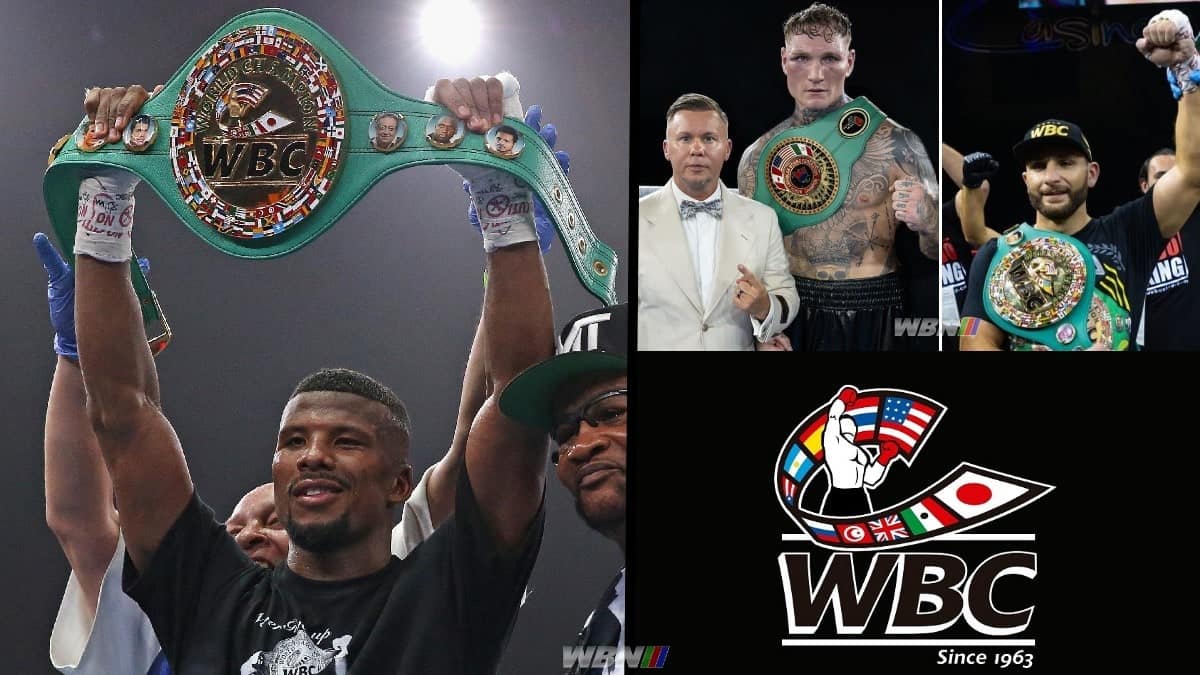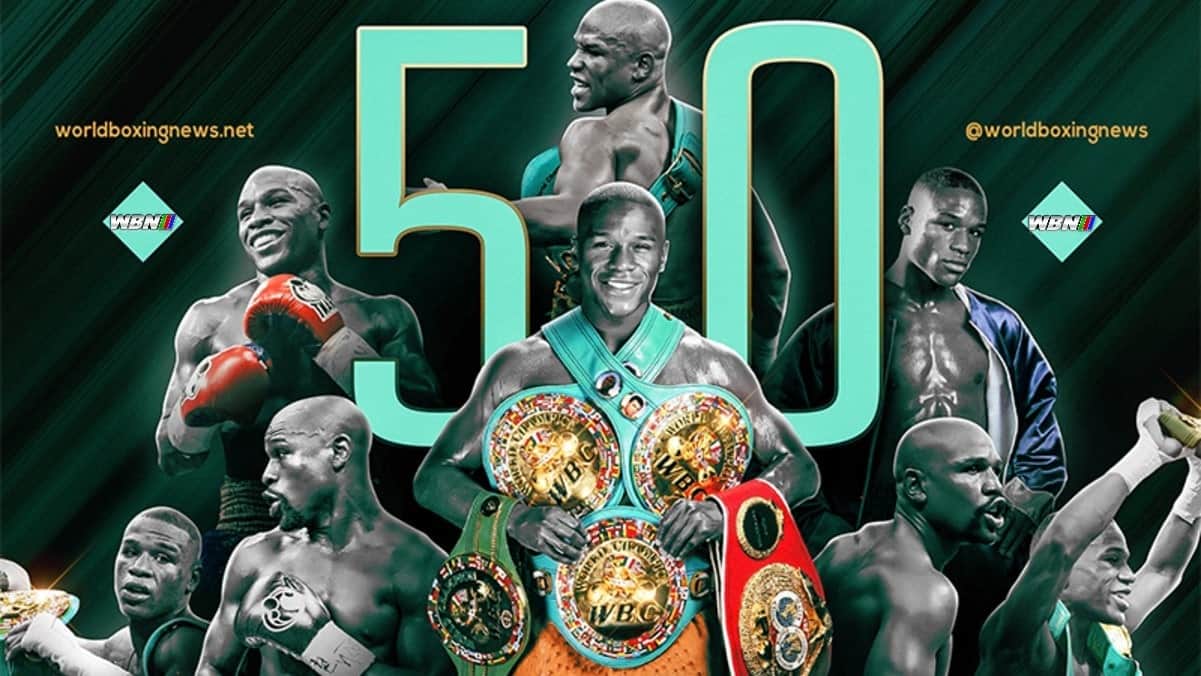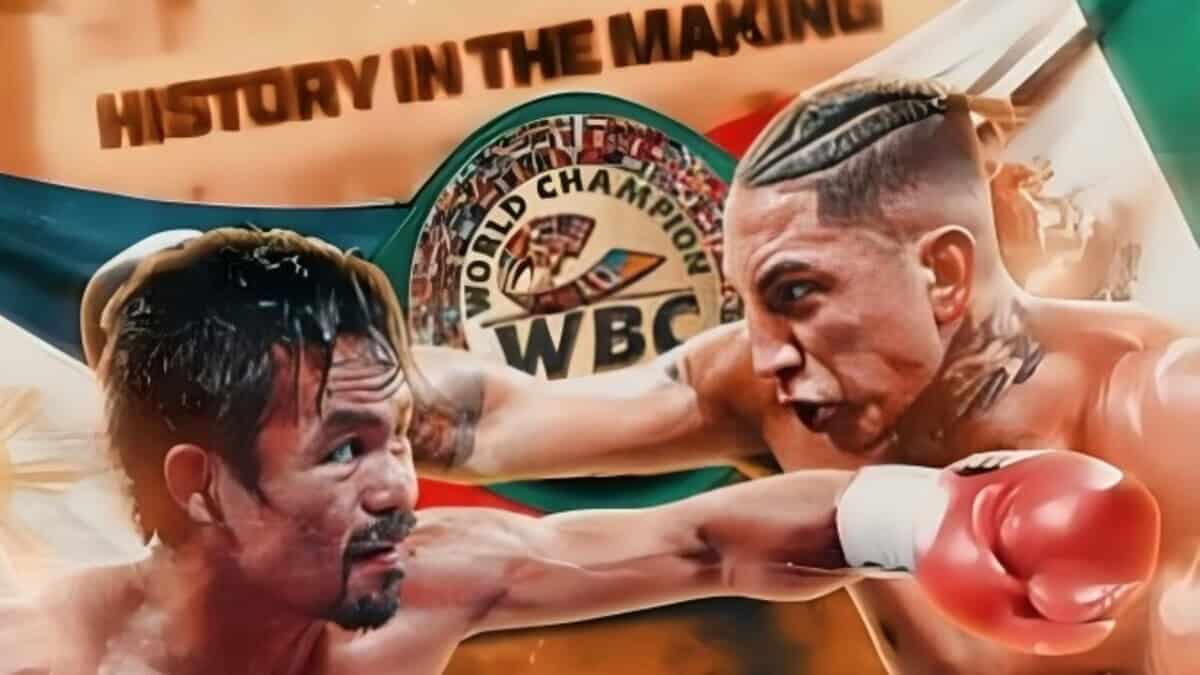Boxing
Six Steps to Boxing Utopia (Part I)
Published
6 months agoon
By
J. Humza
Considering how exhilarating boxing is, how effortless it is to follow even with a basic understanding of what it takes to win a fight, and the incredible characters who shape the drama, it’s frustrating that the sport isn’t (universally) considered one of the greatest in the world.
Some will argue that this is the case, especially after the exceptional opening six months of 2024. But only those who promote their own companies within the boxing bubble, and thus enjoy something like a lucrative period, make such claims with any validity. Outside that bubble, where the general public is usually only teased once or twice a year, the view is somewhat different.
Despite colossal events like Tyson Fury-Oleksandr Usyk, boxing simply doesn’t change often enough. It’s a sport known for the occasional huge fight, but who, apart from you and me, pays attention to the thousands of other fights often enough for it to become a household staple?
The lack of interest can largely be explained by a long-standing, if understandable, reluctance to turn boxing into an organised enterprise. After all, it is not a team sport, nor has it ever been a slave to the clock, the calendar year or the fixture list, and so the tried and tested format of mainstream sports – one that ensures leagues, cups and tournaments are effortless to digest at set times and on set dates – simply does not exist here.
While it does warrant extra interest when spectacular fights suddenly happen – simply because they happen so rarely – the more familiar chaos often prevents the best fights from happening, and while the absurd number of belts on offer may indeed mean more ‘world title’ fights, it only serves to confuse casual sports fans. If you disagree, go tell one of the million or more who bought into the Fury-Usyk fuss that Daniel Dubois is now the heavyweight champion of the world and you’ll see their eyes glaze over as you try to explain why, just two months later, there’s no longer an undisputed king.
In recent months, thanks almost exclusively to the involvement of the Saudi Arabian General Entertainment Authority – headed by Turki Alalshikh – the number of elite-level fights has increased dramatically. As has the unification of titles. It’s a welcome trend. As for boxing, it’s demanding to deny that it’s in a good place, so it might seem a bit rude to criticize it here, especially considering Alalshikh’s plans at an advanced stage.
But is the sport really healing, or has a giant silk plaster simply been slapped on senior wounds? After all, it will take more than sporadic cash injections from the Middle East to make changes last, to ensure that any improvements are widespread and sustainable in the long term. What’s more, while we can dress the windows with eye-catching competitions, it’s equally essential to ensure that the rest of the shop is well-stocked and properly managed for the business to truly thrive.
Here are six issues boxing needs to address to become a leading sport.
- ONE WORLD CHAMPION IN EACH DIVISION
There are four sanctioning bodies (WBC, WBA, IBF, WBO) recognized in the sport – five if you include the IBO. All have different rankings and none have a governing body, other than the Association of Boxing Commissions (ABC), to which they must answer.
So – bear with me – the champion of one organization cannot be ranked by other organizations, and as a result, there is no single rule, commission or sanctioning body that requires the best to compete against the best.
The rules of the WBC, arguably the most influential of all ranking organizations, state: “No champion from another boxing organization will be placed in the top ten because his boxing duties do not allow him to challenge for the WBC title. Accordingly, such opportunities will be granted to those fighters who express a desire to challenge for the WBC title.” No sport could thrive under such absurd circumstances.
While seasoned boxing fans have reluctantly accepted this system, studied the conflicting rankings, and lost their minds over the sheer insanity of it all, it is exceptionally arduous to explain to those interested in just a little bit why there can be five or more “world” champions in some weight classes.
There are often several world title fights in the same category in a tiny period of time, sometimes even on the same event, with different boxers taking part in all of them, and each belt holder is presented to the public – with a straight face – as world champion. Case in point, the three-week stretch in 2020 between Oct. 17 and Nov. 7 when Teofimo Lopez, Gervonta Davis, and Devin Haney all paraded versions of the lightweight world title. Imagine for a moment that you were fresh to the sport, were all excited to see Lopez beat Vasiliy Lomachenko, and bought into the story about him being the fresh 135-pound champion, only to be introduced to not one but two more who supposedly also ruled the lightweight world just days later.
While Dubois-Anthony Joshua is a huge heavyweight clash and was likely settled at the negotiating table by the IBF belt, are we really going to try to pass it off as a world title fight just five months after we all went wild over the undisputed champion being crowned for the first time in 25 years? Those in the promotion’s heartland might think the IBF title adds extra glamour to the fight. The truth is, Dubois-Joshua sells huge time – with or without the red leather belt.
The bottom line is that the current championship system is too convoluted to understand, and if the general public can’t understand it and invest their time and money into something instead, that something will have a demanding time growing. Simply put, boxing should have a championship system that is as effortless to understand as the fights themselves.
One world champion in each weight class would dispel this confusion and make our sport more attractive – not only to fans, but also to the wider media, which, apart from specialist media, only learns about boxing’s existence when a truly massive fight takes place.
So how did we get into this mess? The proliferation of titles is attractive to both promoters and broadcasters because they can dress up more fights as “world title fights.” Some argue that a single champion would limit the options for contenders, and there’s some truth to that. But do other sports suffer because only a select few win the top prize?
The fact that so many title fights go unnoticed outside the boxing bubble shows that all the extra belts dilute both interest and quality. And it’s not just the fault of promoters, broadcasters and sanctioning bodies – the belts are now so ingrained in the consciousness of the entire sport that changing the system will require a monumental effort from the entire industry.
Is there a solution? With four (or five) sanctioning bodies, perhaps just recognizing one of them would lend a hand. But for that to happen, the one that remains would have to address its current policies – regarding rankings, sanctioning fees, cozy relationships with certain influential brokers, and its attitude to performance enhancing drugs – to really stand out from the crowd. And while there are better organizations than others, it’s unrealistic to expect one to rise while the others fall.
There have been repeated rumors that a superpower—such as Saudi Arabia or even Dana White—could buy all the bodies to gain total control. But then what?
A more reasonable solution seems to be to create a better system – one that, over time, makes the senior system completely irrelevant. “That will never happen,” everyone groans. But why not? If you can spend half a billion on a single event – which is what was reportedly the fee for putting on Fury-Francis Ngannou last year – surely there’s money to fix a broken system?
Creating a title that only the best fighters can compete with would go some way to quickly building a following. And being the absolute best fighter in the world would suit the ego and competitive spirit of top boxers very well – especially if there was a clear path to that status. The elimination fights would become huge events – think quarter-finals and semi-finals of major tournaments – and ruling that championships must be held three times a year would ensure regular, top-flight action.
Adding an additional cash prize for winning and defending a title – as opposed to the sanctioning fees boxers currently have to pay to fight for the alphabetical titles – would also make the process easier.
You may like
Boxing
Ryan Rozicki is waiting for Badou Jack’s consent to mandatory cooperation with the WBC
Published
1 day agoon
January 13, 2025
The World Boxing Council (WBC) ordered world cruiserweight champion Badou “The Ripper” Jack (20-1-1, 19 KO) to make a mandatory title defense against Ryan “The Bruiser” Rozicki (20-1), number 1 in the WBC ranking – 1, 19 KOs).
If both camps fail to successfully negotiate an agreement, the WBC will organize a tender on February 4, followed by the Jack vs. Rozicki. Rozicki’s promoter, Three Lions Promotions, immediately sent Team Jacek an offer to promote the fight in Canada last week.
“We are waiting for their counteroffer,” explained promoter Dan Otter of Three Lions Promotions. “Boxing has had a huge resurgence in Canada and Ryan is leading the way. He is one of the most electrifying and hardest-hitting fighters in boxing, definitely in the cruiserweight division. He wants the WBC green belt and ultimately the unification of the division. Ryan will fight Jack anywhere for the belt.”
29-year-old Rozicki, born in Sydney (Nova Scotia) and living in Hamilton (Ontario), fought 22 professional fights against 21 different opponents (twice against Yamil Alberto Peralta), stopping 19 of the 20 opponents he defeated. an eye-opening 95-KO percentage.
Jack, 41, was a 2008 Olympian representing his native Sweden. He is a three-division world champion, as well as the WBC super middleweight and World Boxing Association (WBA) lightweight heavyweight title holder. Jack has a record of 5-0-2 (2 KO) in world championship fights.
“We respect Jack and I don’t want to sound disrespectful,” Otter added, “but he’s over 40 years vintage and has been relatively inactive for two years (only one fight). He brings a lot of experience and respect to the ring, but he will fight a newborn defender with a lot of power. Jack is going to struggle and honestly, I don’t think he’ll make it past the first few rounds.”
Ryan Rozicki is on a mission to become the first Canadian cruiserweight world champion.
The next move is Badou Jack’s.
Boxing
Floyd Mayweather’s record is not normal, it can’t happen in 70 years
Published
3 days agoon
January 12, 2025
Floyd Mayweather’s incredible 50-0 record is not normal and cannot be repeated in sports for another seventy years.
This is the view of Saudi Arabian president Turki Alalshikh, who wants to adopt the UFC model in which fighters lose many fights during their career.
In a speech as he hosted the Ring Magazine Awards after acquiring the long-running boxing publication from Oscar De La Hoya, Alalshikh was unequivocal in his opinion.
“Now losing some fights in boxing must be normal,” he explained. “All fighters want a career similar to Floyd Mayweather – no losses. This may happen once every 50, 60 or 70 years.
“We need it [to be] like currently in the UFC model, where champions lose and win,” added the matchmaker during the Riyad season.
Mayweather rose through the sport in the tardy 1990s to become one of its youngest superstars. Mayweather’s professional success came after winning a bronze medal at the Olympics after losing to Serafim Todorov.
Winning world titles in five weight classes, Mayweather was untouchable. The Grand Rapids native only came close to defeat a few times. He dominated Manny Pacquiao and overtook Canelo Alvarez and Oscar De La Hoya after heated debates, with decisions that should have been made unanimously.
Towards the end of his career, Mayweather chose to face Andre Berto and Conor McGregor, easily winning and ending his boxing career at the age of 50 without ever going out. Calling himself “the greatest of all time,” Mayweather earned first-ballot Hall of Fame honors and is widely considered one of, if not the greatest defensive fighter of all time.
However, Alalshikh says this type of career needs to end so that fans can get the most out of boxing, as is the case with the Ultimate Fighting Championship. Boxing needs to become more attractive, and Alalshikh sees the failures of top stars as a way to keep interest at an all-time high.
In this sport, many boxers enjoy undefeated streaks, the most notable of which is Oleksandr Usyk. The Ukrainian Pound for Pound King is 23-0 and has beaten the best he has to offer in his division and cruiserweight classification.
It remains a mystery how Alalshikh plans to make Usyk suffer while he dominates everyone else. By the time his grand plan goes into action, Usyk will be long gone, and Gervonta Davis, Shakur Stevenson and Devin Haney may be more realistic targets.
Boxing
Manny Pacquiao remains the favorite to win the title against Mario Barrios
Published
1 week agoon
January 6, 2025
WBN understands that despite alternative options emerging, it is more likely that Manny Pacquiao will face Mario Barrios next.
Bob Santos, coach of WBC welterweight champion Barrios, told World Boxing News that he is currently in contact with Pacquiao’s team. Asked by WBN if he had spoken to Pacquiao or representatives of any other challenger, Santos replied: “Yes, Pacquiao’s promoter, Sean Gibbons.” Pressed on whether Barrios vs Pacquiao might happen next, he added: “It’s challenging to say. We’ll have to see how this plays out.”
WBN contacted Santos after Conor Benn emerged as a potential alternative to Barrios. The British fighter, who recently returned from a suspension following two positive drug tests, is keen to return to competition.
Benn showed favor with the World Boxing Council at the recent WBC Convention, the WBC Evaluation Committee and during an interview with the sanctioning body over the weekend. “The Destroyer” is ranked second in the rankings at 147 pounds, despite less than solid opponents during his time in exile, during which Benn competed twice in the United States while his career in the United Kingdom was in doubt.
As he battled to clear his name and with the British Anti-Doping Authority finding no evidence that Benn had intentionally taken ostarine, the 28-year-old’s career took a pointed nosedive. Despite this, he remains highly rated and at least one step away from fighting for an eliminator or one of the remaining championship titles.
However, Pacquiao remains Barrios’ favorite. Now it’s up to the boxing legend and Hall of Famer who got the first votes to secure his shot. WBN believes a July date – most likely at the MGM Grand in Las Vegas – is the most realistic date for a Nevada swan song.
Pacquiao could extend his record as the oldest welterweight champion by six years if he can secure a huge victory over the 29-year-old world champion. At 46 years antique, such a scenario remains unlikely, but he can never be compared to one of the greatest players of this generation.
Unlike heavier boxers and his training regiment, Pacquiao looks in great shape despite his advanced age. Everything is set for a massive return to the boxing capital of the world, provided Pacquiao and his team can manage his political ambitions, which are expected to run from this month until May. After that time, Pacquiao could find himself in the summer finals and become the all-time champion, regardless of the result.
Barrios is based in the city, where he trained with Santos, and would be the perfect opponent to see out the career of one of the greatest fighters in history.

ANTHONY JOSHUA WARNED, ‘Don’t fight Martin Bakole, TOO DANGEROUS!’ – Johnny Nelson

Callum Simpson On Artur Beterbiev Sparring

WARNING! ‘TYSON FURY & ANTHONY JOSHUA SHOWING SIGNS OF WEAR’ – Ricky Hatton RAW on RIVALRY
Trending
-

 MMA8 months ago
MMA8 months agoMax Holloway is on a mission at UFC 212
-

 Interviews3 months ago
Interviews3 months agoCarl Froch predicts that Artur Beterbiev vs Dmitry Bivol
-

 MMA8 months ago
MMA8 months agoCris Cyborg ready to add a UFC title to her collection
-

 MMA8 months ago
MMA8 months agoThe Irish showed up in droves at the Mayweather-McGregor weigh-in
-

 Interviews3 months ago
Interviews3 months agoArtur Beterbiev vs Dmitry Bivol
-

 Boxing6 months ago
Boxing6 months agoLucas Bahdi ready to test his skills against Ashton Sylve
-

 Interviews8 months ago
Interviews8 months agoI fell in love with boxing again
-

 Opinions & Features3 months ago
Opinions & Features3 months agoDmitry Bivol: The story so far


